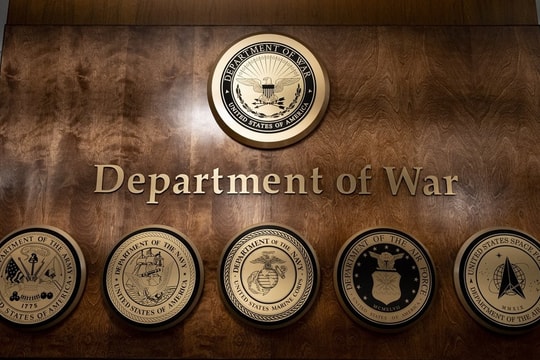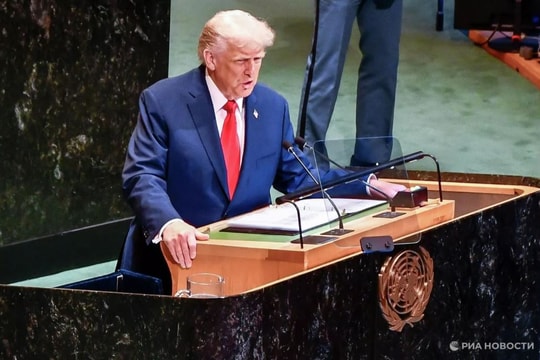World last week: Concessions to avoid disagreement
(Baonghean.vn) - Overcoming all differences and disagreements, the European Union (EU) has reached a consensus on a record-breaking budget package to support economic recovery from the pandemic and operating costs for the next 7 years. US-China relations have escalated to new tensions and mutual retaliation after the US decided to close the Chinese Consulate General in Houston. These are the international issues that have received attention in the past week.
Eliminate “overnight” conflicts
For the first time in 20 years, an EU summit lasted for days and was extremely tense. Finally, the leaders of the 27 member states overcame their differences and conflicts to agree on a $750 billion recovery package to provide loans and support to the countries most affected by the pandemic.
But unlike the original, the support has been reduced from 500 billion euros to 390 billion of the total 750 billion euros, in the form of free grants; and 360 billion euros in the form of preferential loans. Italy - the country most damaged by Covid-19, will receive nearly 209 billion euros.
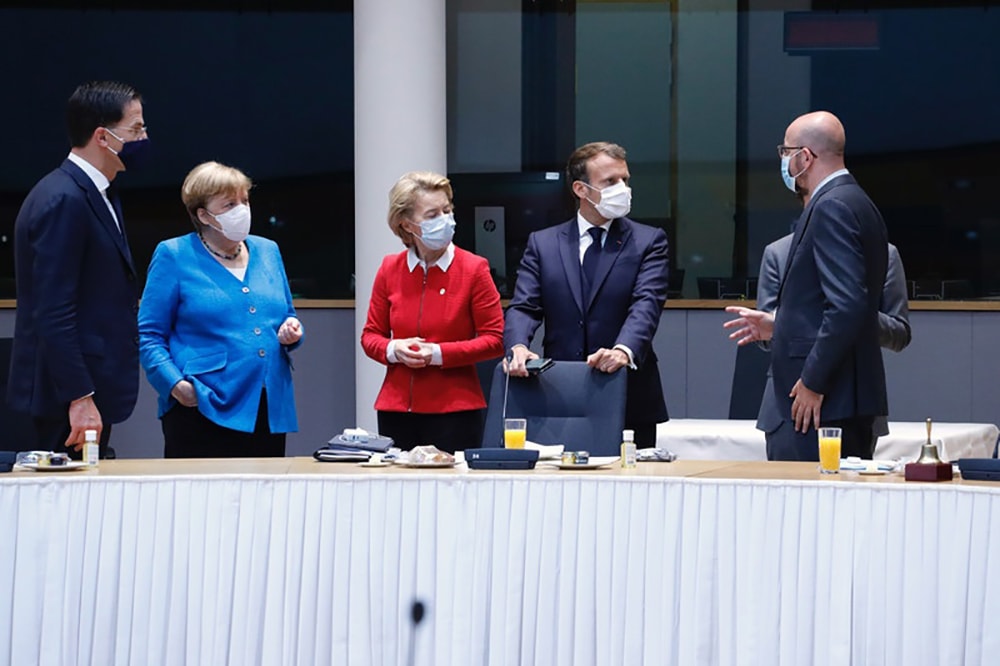 |
| From left: Dutch Prime Minister Mark Rutte, German Chancellor Angela Merkel, President of the European Commission Ursula von der Leyen, French President Emmanuel Macron and President of the European Council Charles Michel at a working session at the EU Summit. Photo: European Council. |
This summit is all the more special because of the deep “overnight” conflicts arising from different economic interests and the way of allocating budgets. Some Northern European countries - the “Frugals” group including the rich countries of the Netherlands, Sweden, Austria, Denmark and Finland - have accused Southern Europe of not carrying out the necessary reforms to develop the economy and avoid falling into crisis. Therefore, “Frugals” strongly oppose the “free” allocation mechanism and suggest that the subsidies should be reduced and the debt repayment should be increased. Meanwhile, Italy and Spain - the countries most affected by the pandemic, have accused the Northern countries of making it difficult for the EU project, cracking the solidarity of the bloc.
To break the deadlock and avoid a collapse of the negotiations, European Council President Charles Michel put forward a proposal that diplomats described as a "path to an agreement". Accordingly, the proposed 390 billion euros in support is accompanied by some small refunds to the "Frugals" group.
Finally, the much-anticipated nod from the 27 member states came as a sigh of relief. Many believe that the long-term budget package of more than 1,000 billion euros for the next 7 years seems to be easier in gathering the common voice of the member states.
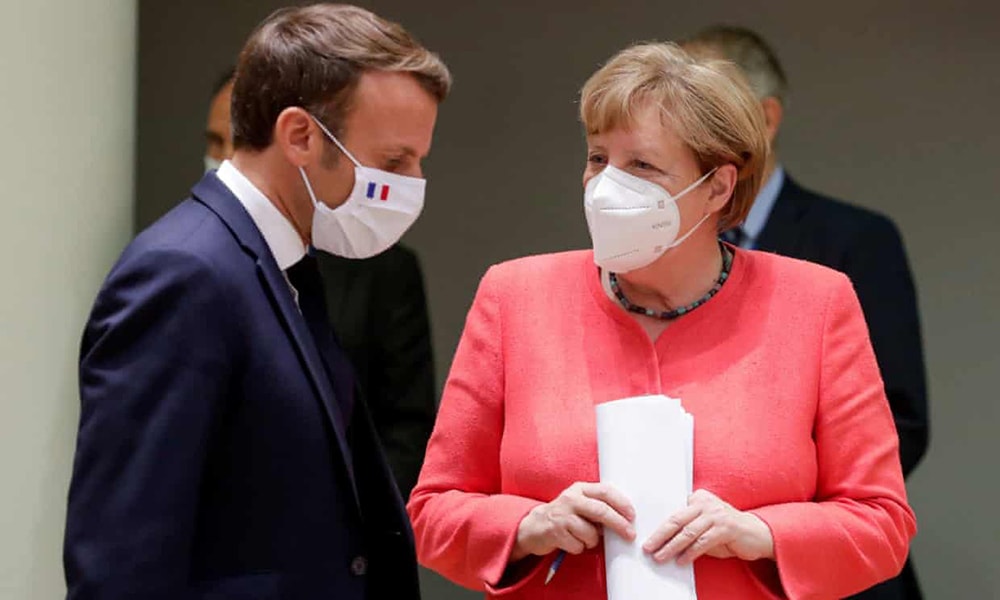 |
| French President Emmanuel Macron and German Chancellor Angela Merkel at the summit. Photo: Reuters |
Remember, 10 years ago when the euro crisis happened, Chancellor Merkel defied strict conditions to provide financial support to EU countries with less favorable economic conditions. At that time, Ms. Merkel approved soft loans, while disagreeing with forms of support such as grants.
The EU summit, which took place from July 17 to 21, approved the 7-year operating budget for the period 2021 - 2027 with 1,074.3 billion euros. The adoption of such an ambitious plan is necessary in the context of the health crisis that continues to threaten the "old continent", and the continent's economy is being plunged into a severe recession with a forecast of negative growth of 8.3% this year.
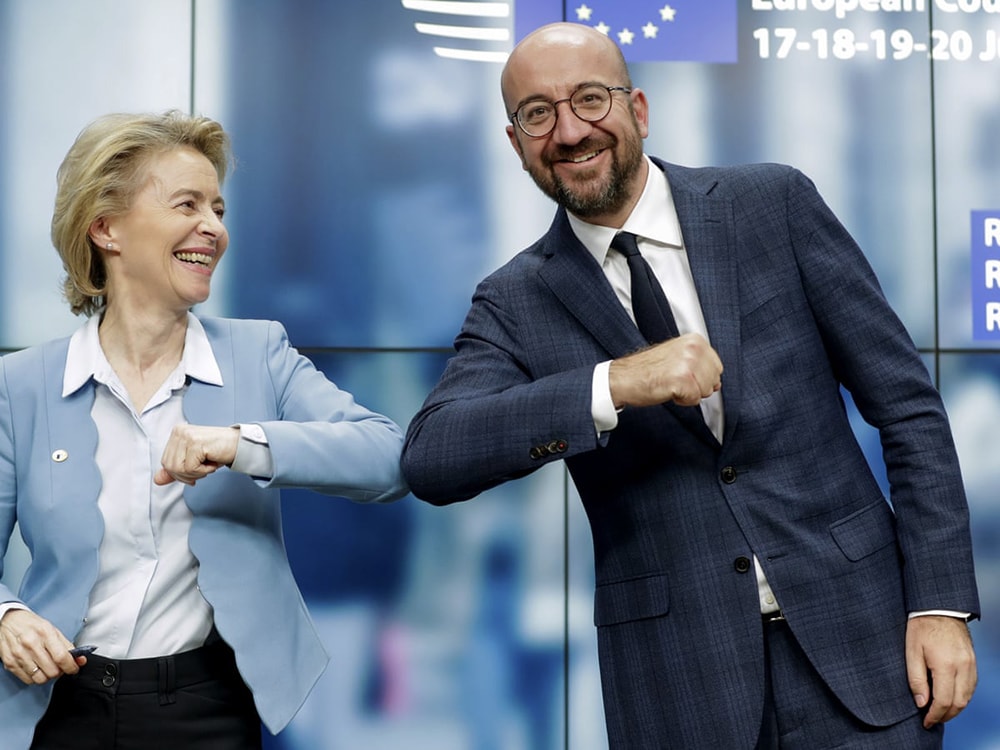 |
| EC President Ursula von der Leyen and European Council President Charles Michel congratulated the success of the EU summit. Photo: The Guardian |
"Annoying" each other
Calling the Chinese Consulate General in Houston a military intelligence center, the US has ordered the Chinese Consulate General to close within 72 hours. This is an unprecedented move in the 41 years of US-China diplomatic relations. The US explained that they did so to "protect American intellectual property and personal information", while China called this "an unprecedented escalation" and took countermeasures.
US lawmakers say it is necessary to combat security espionage, but others say the closure of the Houston consulate is politically motivated. The White House appears to have outlined a strategy to make things difficult for Beijing while also strengthening President Trump's support in the election sprint.
Moreover, this is also a way to deflect public opinion from Mr. Trump’s failure to control Covid-19, and point the finger at a foreign enemy who may be responsible for the pandemic. From there, public opinion will return to the economic issue - President Trump’s central theme in the election race.
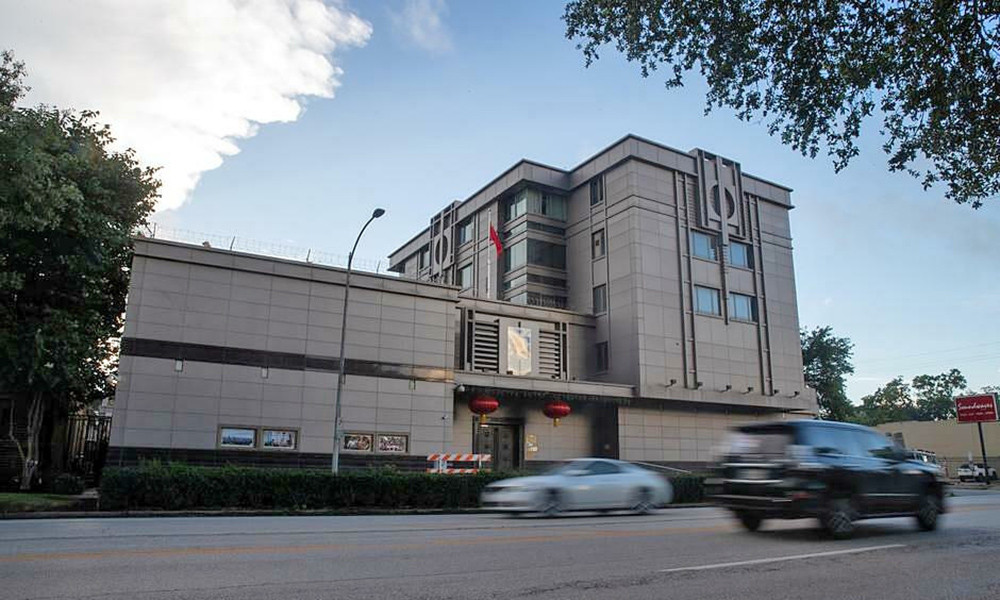 |
| Chinese Consulate in Houston. Photo: Reuters |
Secretary of State Mike Pompeo, who just completed a trip to Europe to call for a coalition to take a tough stance on Beijing, declined to provide details about the decision to close the consulate.
“There is certainly a legitimate reason to confront China,” said independent Senator Angus King. “But I am concerned about whether this escalation is really about confronting China, or is it related to the election that is coming up in four months?”
Several Trump administration officials acknowledged that the president often urged his advisers to impose tougher sanctions on China in the trade war. But as Covid-19 began to wreak havoc on the US economy, Republican allies and White House staffers began arguing that attacking China for failing to contain the pandemic early was a way to shore up the president’s political base.
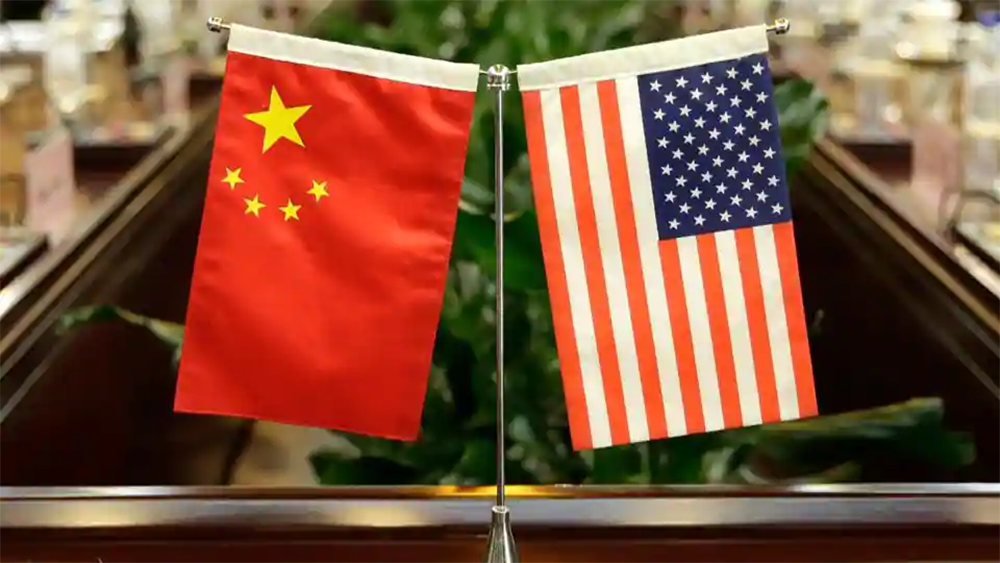 |
| US-China relations have fallen to their lowest point in 41 years of diplomatic relations. Photo: AFP |
For its part, China immediately requested the closure of the US Consulate General in Chengdu, the capital of Sichuan province, in response. Observers say that in the face of the Trump administration's increasingly expansive attacks, China will find it difficult to respond strongly and "sever" relations with the US. Because if that happens, it will further isolate China and could also damage its economy, which has been severely affected by the pandemic.




